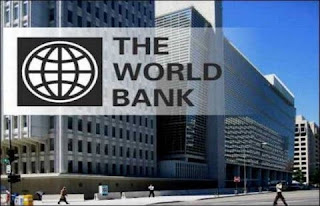CBN seeks power to freeze criminals’ accounts, wants Credit Tribunal

By Emma Ujah, Abuja Bureau Chief
The Central Bank of Nigeria, CBN, has requested statutory powers to freeze accounts linked to criminals in the country.
The apex bank also called for the creation of a Credit Tribunal to strengthen credit recovery processes and enforcement of collateral rights.
These positions were advanced, in Abuja, yesterday, at the Senate Committee’s public hearing on its Bill for an Act to Repeal the Banks and Other Financial Institutions Act (BOFIA) 2004 and re-enact the Banks and Other Financial Institutions Act 2020.
CBN’s Director Legal Services, Mr. Kofo Salam-Alada, in his presentation, told the lawmakers that the 2004 BOFIA provided for the CBN governor “to apply to the court for orders to freeze accounts, which are deemed to be linked with criminal and other civil infractions.”
He noted, however, that in the new bill, which has passed through the First and Second Readings, that provision was omitted, entirely.
“This omission,” he told the Senate, “erodes the powers of the CBN and creates a huge gap in the regulatory and resolution framework. Therefore, we propose that the extant provisions should be reinstated,” Mr. Salam-Alada said.
Tribunal
On the Creation of Credit Tribunal, the director defended the position of the CBN, as according to him, such a tribunal would greatly enhance loan recovery in the nation’s banking industry.
“As part of measures to address the role of non-performing loans, we propose the creation of a Credit Tribunal. The overarching objective is to create an efficient regime for the recovery of eligible loans of banks and Other Financial Institutions (OFls) and enforcement of rights over collateral securities,” the director said.
On dormant accounts in banks, the CBN called for the inclusion of provisions to improve the administration of such accounts, adding that “such provisions should address such requirements as the criteria for determining dormancy, the processes for managing the funds in dormant accounts and procedure for reclaiming funds by beneficiaries.”
Bank failure resolution
The apex bank called for inclusion in the bill, statutory powers of the CBN to intervene in the process of managing a failing bank and bringing it back to sound financial health, were possible.
The CBN urged a review of framework for managing failing institutions in line with international standards to properly delineate roles for the agency tasked with managing failing banks and other financial institutions and those with responsibility for resolving banks and other financial institutions whose licenses have been revoked.
Salam-Alada said: “In other words, the Central Bank of Nigeria does the former as provided in the BOFIA, while NDIC is saddled with the latter under the NDIC Act. The global best practice is to have the banking legislation empower the financial services industry regulator to regulate banks, promote their soundness and stability, superintend issuance and revocation of operating licence without recourse to any other institution; while the deposit insurer is in charge of bank resolution activities after the revocation of operating licence.
“There is a need to expand the options available to the CBN to resolve failing banks and manage systemic crisis without recourse to the public treasury. In line with international best practices, we recommend the establishment of a resolution fund to pool resources for managing banking sector distress.”
“We also recommend the adoption of additional resolution tools such as bail-in (ensuring that losses are absorbed by shareholders and creditors), sale of business (allowing the resolution authority to sell all or part of the failing bank to a private acquirer) and asset separation (isolating the “bad” assets of the bank in an asset management vehicle for orderly wind down, if immediate liquidation is not justified in current market conditions).
“Several new types of licensed institutions have entered the Nigerian financial Services sector since the enactment of the 1991 Act. These include the non-interest banks, credit bureaux, payment system service providers, among others. There is a compelling need to introduce new provisions in the Bill to address the unique peculiarities of these institutions.”
The Nigeria Deposit Insurance Corporation, NDIC, agreed with the position of the CBN on the need to delineate the responsibilities of the two organizations in banking failure resolution.
The Managing Director , Mr. Umaru Ibrahim, said the NDIC which was created from the CBN to protect depositors’ funds would continue to collaborate with the apex bank in ensuring a sound, stable banking sector in the country.



Comments
Post a Comment